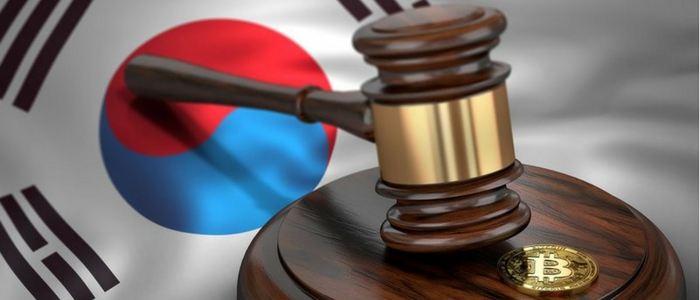South Korea is known to host significant crypto trading activity. South Koreans were among the major players during the 2017 crypto boom. The country accounts for less than 1% of the world’s population. But they were behind 30% of the crypto trading volume that year. This was according to estimates by fintech company Cindicator at the time.
South Korea’s Regulation On Crypto Industry
South Korea’s crypto industry is experiencing one of the biggest shake-ups in history, according to Business Insider. “The past four years have been a tumultuous storm between crypto exchanges and the regulatory authorities. And now, in 2021, the government has finally put its foot down. What comes next will either make or break South Korea’s crypto legacy.”
In March, South Korea passed new legislation to strengthen the supervision of virtual assets. However, this new law has resulted in a pushback by banks.
Related Reading | Crypto Exchange Binance Under Investigation by Department of Justice and IRS
The new rule obligates all virtual asset service providers to report their business status to the Financial Intelligence Unit (FIU) to begin operations. The FIU is an anti-money laundering unit under the Financial Services Commission (FSC). This rule took effect in March with a six-month grace period.
According to the Korean Herald, to gain approval to operate, virtual asset service providers must acquire verifiable accounts in their real names from local banks, while taking anti-money laundering measures like the launch of information security management systems.
Related Reading | Breaking Down What South Korea’s Crypto Crackdown Means for the Industry
In July, the South Korean National Assembly‘s National Policy Committee made a statement on the issue. “Business activities carried out by overseas cryptocurrency exchanges targeting local customers without reporting to the Financial Intelligence Unit – an anti-money laundering unit under the Financial Services Commission – are illegal under the revised Act on Reporting and Using Specified Financial Transaction Information”.
Total crypto market cap falls back down from $2 trillion | Source: Crypto Total Market Cap From TradingView.com
“From Sept. 25, coin operators based outside South Korea, including Binance – the world’s largest cryptocurrency exchange in terms of trading volume – will be banned from serving local customers if they haven’t received authorization from financial regulators,” the FSC said.
Crypto Exchanges Refrain From Doing Business in South Korea
The new rule mandating crypto exchanges to register with the FIU and comply with the government’s guidelines has been met with concerns. These rules aren’t new and have been in existence since 2018. But the South Korean government has now made them mandatory. As a result, some foreign cryptocurrency exchanges have distanced themselves from South Korea.
One such exchange is Bitfront, a US-based crypto exchange set up by the messaging app company Line. As reported by the Korean Herald, the company has announced it will stop providing a Korean-language service on Sept. 14. Additionally, Bitfront also said it will terminate payments with Korean credit cards.
Related Reading | Crypto Exchange Binance Discontinues South Korean Trading Pairs And Language Support
Just recently, Binance, the world’s largest crypto exchange, also discontinued some services that it had previously offered in South Korea. This announcement was made five days ago on the company’s website. “Binance P2P will remove KRW trading pairs on Friday, 2021-08-13 at 11:00 UTC (20:00 UTC+9). Users are advised to complete all related P2P trades and remove related trade advertisements by 2021-08-13 10:00 UTC (19:00 UTC+9) to avoid potential trading disputes”.
Featured image from BiteMyCoin.com, Chart from TradingView.com
